Broken bones healing and post-op care
50 years old make had a very bad ski accident, badly broke tibia and collar bone, had bruises everywhere, was in shock and horrible pain . Few hours after the accident he was admitted in Hopital de Sion (the main regional hospital in Swiss Alps) where severity of injuries was assessed by doctors. Conclusion was that fractures are so severe that no surgeon in the region though they could be fixed, they doubted the patient would be able to walk again.
I arrived one hour later and started Reiki treatment on affected areas. After 1.5 hour, treatment interrupted several times by medical staff who were not happy about me doing the treatment, pain diminish significantly.
Next morning after 2-hours treatment, patient was transferred to private clinic where the best orthopedic surgeon operates. His assessment was: “…may be able to fix but cannot know before going in, injuries consistent as with person falling from 5 meters…”. From this point I did every day minimum 60 minutes treatments plus distant healing. Pain completely disappeared after 2 sessions . Medical staff insisted that the patient takes pain medication (they said it was impossible that he is not in horrible pain), so he took meds and hid them in the drawer instead of taking them.
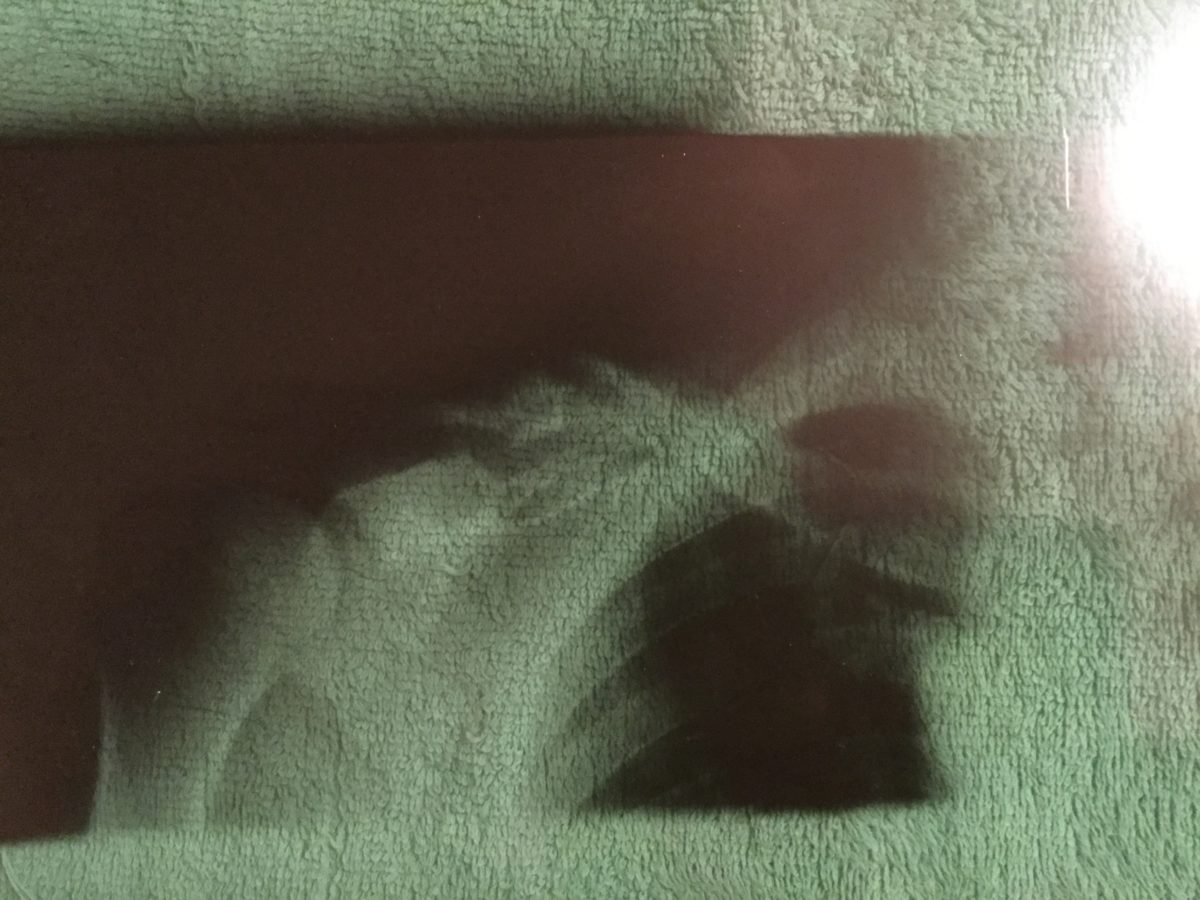
After the surgery he was given morphine for the night but we agreed he would not take it the next morning as I would arrive as soon as he wakes up and start Reiki treatment. We did so and he never again had the pain related to injuries or surgery. Surgery was successful and doctor said , given the severity of injuries that the healing will take at the best case scenario 6 months, with intensive physical therapy at the clinic.
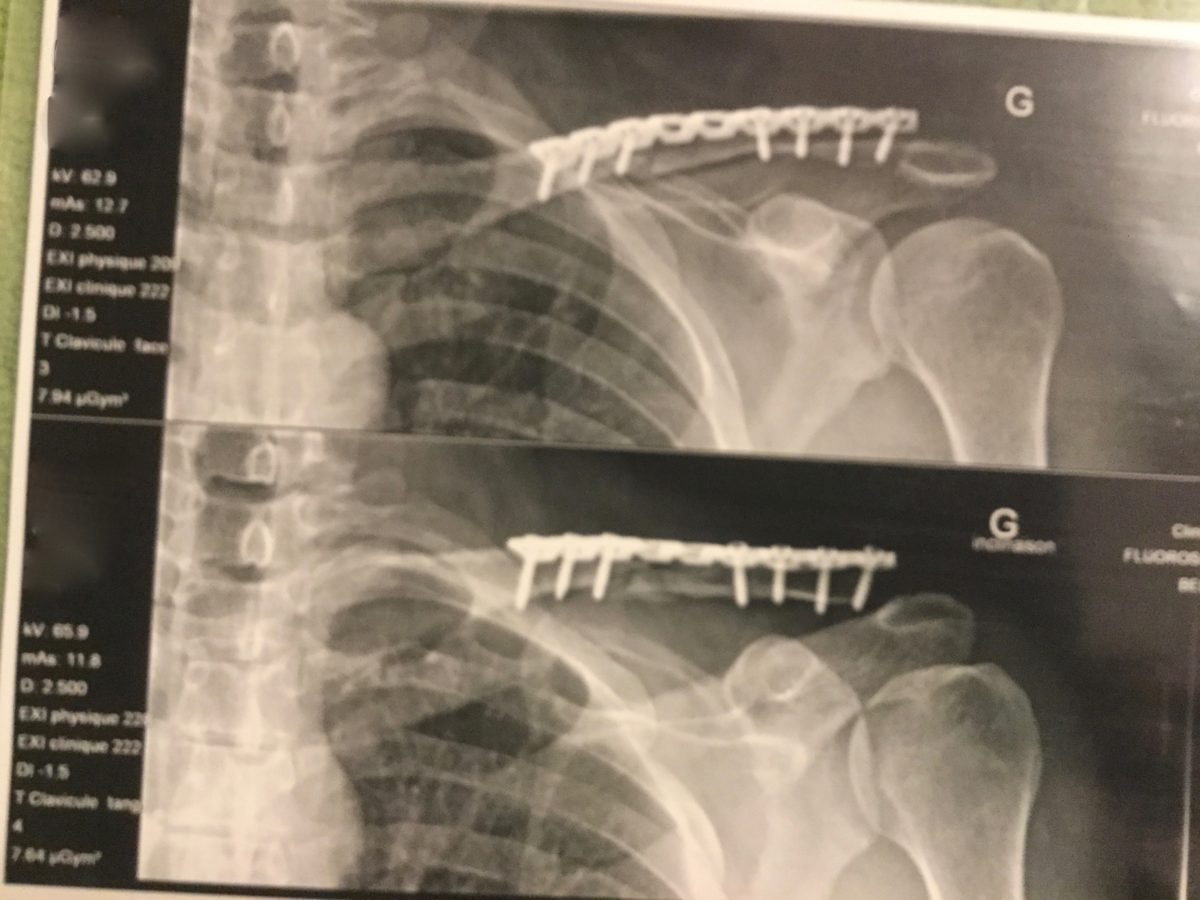
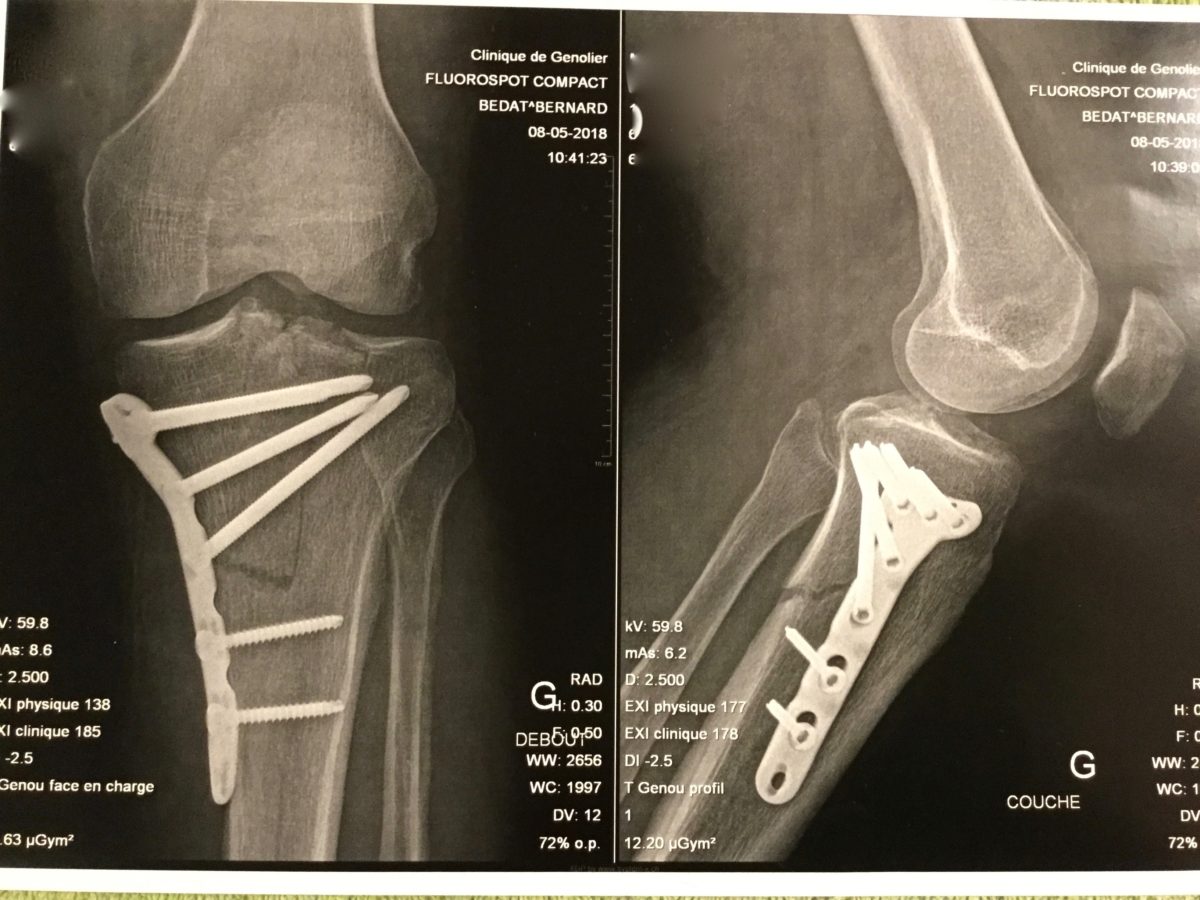
I continued daily treatments and just two months after the surgery all bones healed. X ray image shows almost no sign of fractures. Doctor, who was very sceptical about Reiki , was so puzzled and kept repeating “I have no explanation, this is just impossible but you are completely healed ”. Up to that moment the patient did not quite believe in the healing power of Reiki but after that he expressed desire to learn Jikiden Reiki himself.
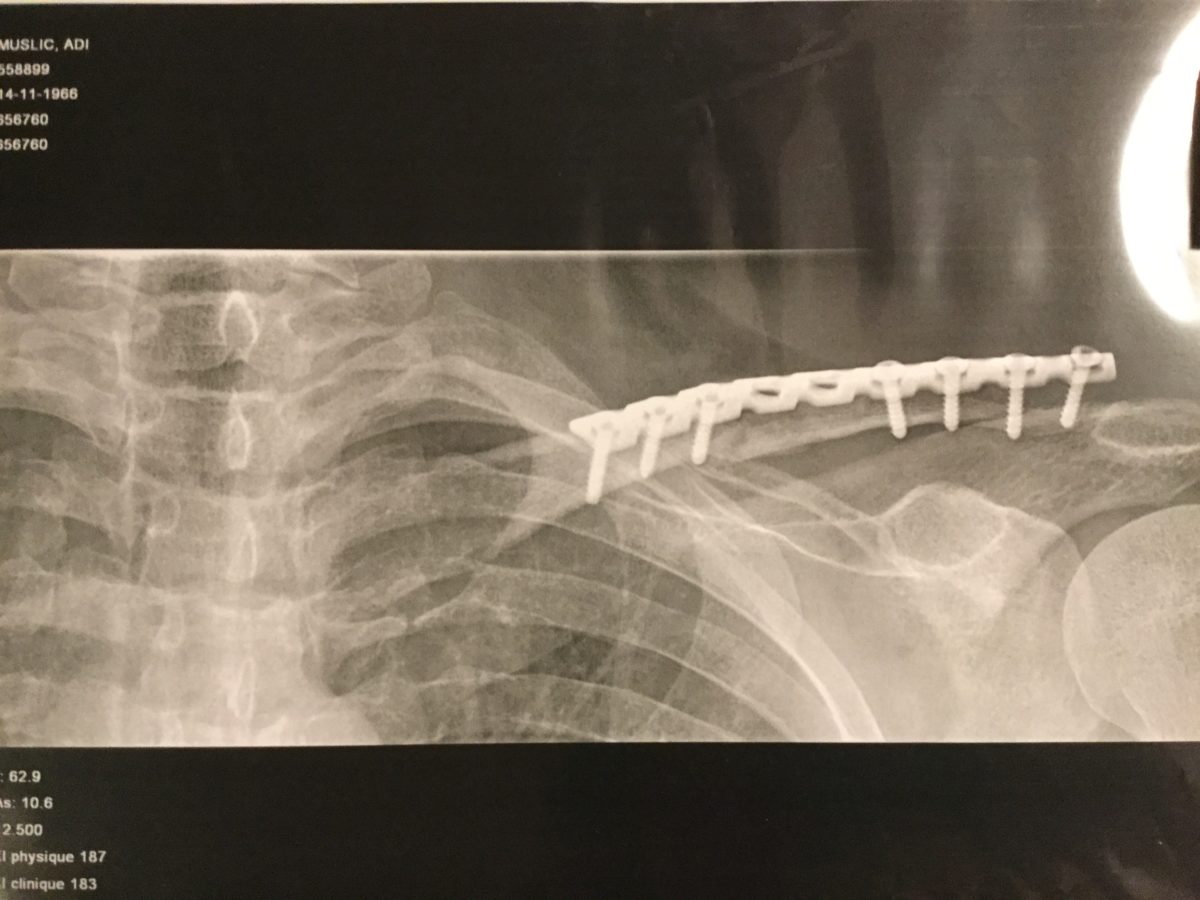
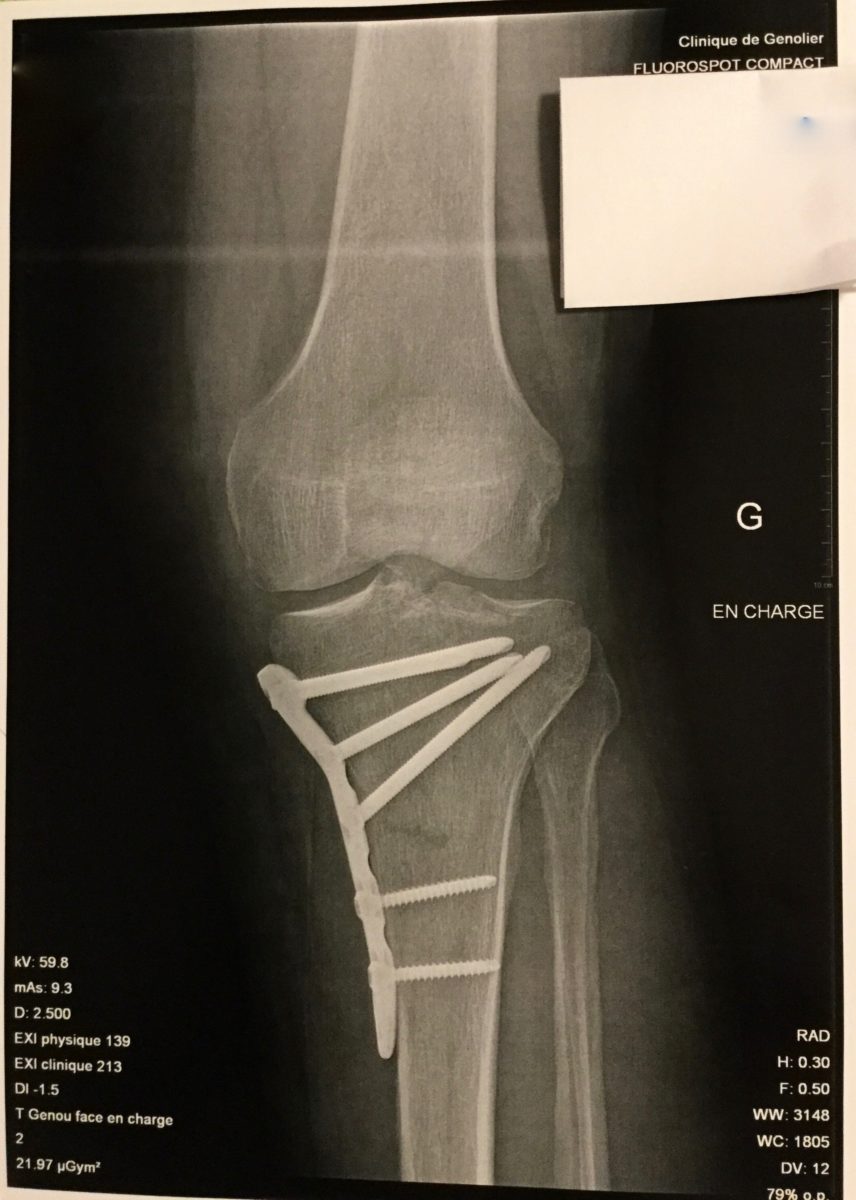
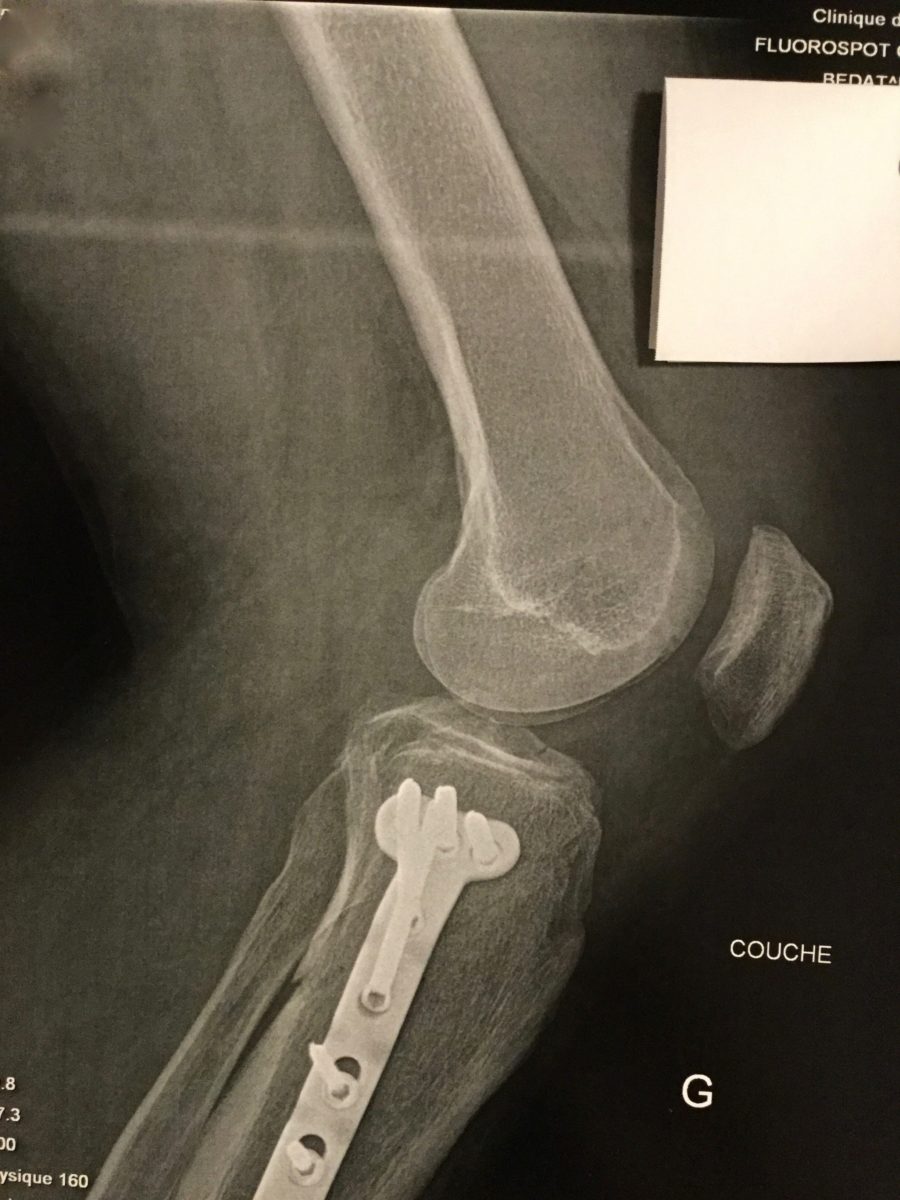
Some of publications available at The National Center for Biotechnology Information (PubMed)
The effect of reiki on pain: A meta-analysis.
Demir Doğan M (Gümüşhane University, Faculty of Health Sciences, Gümüşhane, Bağlarbaşı Mahallesi 29100, Turkey.)
Abstract
OBJECTIVE:
Pain is one of the most common symptoms and may lead to important psychological, mental, and physiological problems in individuals. According to data by The Center for Reiki Research, Reiki is an effective approach to decrease the levels of pain, depression, and anxiety. Therefore, the aim of this meta-analysis was to investigate the effect of Reiki on pain level.
METHODS:
Randomized controlled clinical trials in databases of Pubmed, ISI Web of Sciences, and Google Scholar were investigated. 4 randomized controlled studies involving 212 participants were included in the meta-analysis.
RESULTS:
The result obtained after the final Reiki application was evaluated in VAS pain score. When Reiki (n = 104) group was compared with control group (n = 108), standardized mean difference was observed to be -0.927 (95% CI: -1.867 to 0.0124). Reiki was observed to cause a statistically significant decrease in VAS score.
CONCLUSION:
Consequently, this meta-analysis revealed that Reiki was an effective approach in relieving the pain.
Copyright © 2018 Elsevier Ltd. All rights reserved.
Reiki Is Better Than Placebo and Has Broad Potential as a Complementary Health Therapy.
Abstract
This study reviews the available clinical studies of Reiki to determine whether there is evidence for Reiki providing more than just a placebo effect. The available English-language literature of Reiki was reviewed, specifically for peer-reviewed clinical studies with more than 20 participants in the Reiki treatment arm, controlling for a placebo effect. Of the 13 suitable studies, 8 demonstrated Reiki being more effective than placebo, 4 found no difference but had questionable statistical resolving power, and only one provided clear evidence for not providing benefit. Viewed collectively, these studies provide reasonably strong support for Reiki being more effective than placebo. From the information currently available, Reiki is a safe and gentle “complementary” therapy that activates the parasympathetic nervous system to heal body and mind. It has potential for broader use in management of chronic health conditions, and possibly in postoperative recovery. Research is needed to optimize the delivery of Reiki.
An exploratory study of reiki experiences in women who have cancer.
Kirshbaum MN (School of Health, Charles Darwin University, Darwin, Australia), Stead M (Alexandra House Spa, Huddersfield, UK.), Bartys S (Centre for Applied Psychological and Health Research, Institute for Research in Citizenship and Applied Human Sciences, University of Huddersfield.)
Abstract
AIMS:
To explore the perceptions and experiences of reiki for women who have cancer and identify outcome measures for an intervention study.
METHODS:
A cross-sectional qualitative study of 10 women who had received reiki after cancer treatment was conducted. Interviews were audiotaped, transcribed and coded using framework analysis.
RESULTS:
Key themes identified were: limited understanding of reiki prior to receiving any reiki; release of emotional strain during reiki-feelings of a release of energy, a clearing of the mind from cancer, inner peace/relaxation, hope, a sense of being cared for; experience of physical sensations during reiki, such as pain relief and tingling; physical, emotional and cognitive improvements after reiki, such as improved sleep, a sense of calm and peace, reduced depression and improved self-confidence.
CONCLUSION:
Findings suggest that reiki could be a beneficial tool in the self-management of quality of life issues for women who have cancer.
Effect of Reiki therapy on pain and anxiety in adults: an in-depth literature review of randomized trials with effect size calculations.
Thrane S (University of Pittsburgh School of Nursing, Research in Cancer Survivorship, Pittsburgh, Pennsylvania), Cohen SM (University of Pittsburgh School of Nursing, Research in Cancer Survivorship, Pittsburgh, Pennsylvania)
Abstract
The objective of this study was to calculate the effect of Reiki therapy for pain and anxiety in randomized clinical trials. A systematic search of PubMed, ProQuest, Cochrane, PsychInfo, CINAHL, Web of Science, Global Health, and Medline databases was conducted using the search terms pain, anxiety, and Reiki. The Center for Reiki Research also was examined for articles. Studies that used randomization and a control or usual care group, used Reiki therapy in one arm of the study, were published in 2000 or later in peer-reviewed journals in English, and measured pain or anxiety were included. After removing duplicates, 49 articles were examined and 12 articles received full review. Seven studies met the inclusion criteria: four articles studied cancer patients, one examined post-surgical patients, and two analyzed community dwelling older adults. Effect sizes were calculated for all studies using Cohen’s d statistic. Effect sizes for within group differences ranged from d = 0.24 for decrease in anxiety in women undergoing breast biopsy to d = 2.08 for decreased pain in community dwelling adults. The between group differences ranged from d = 0.32 for decrease of pain in a Reiki versus rest intervention for cancer patients to d = 4.5 for decrease in pain in community dwelling adults. Although the number of studies is limited, based on the size Cohen’s d statistics calculated in this review, there is evidence to suggest that Reiki therapy may be effective for pain and anxiety. Continued research using Reiki therapy with larger sample sizes, consistently randomized groups, and standardized treatment protocols is recommended.
Copyright © 2014 American Society for Pain Management Nursing. Published by Elsevier Inc. All rights reserved.
Reiki’s effect on patients with total knee arthroplasty: A pilot study.
Notte BB, Fazzini C, Mooney RA.
Abstract
BACKGROUND:
In the immediate postoperative period, managing postsurgical pain with pain medication can contribute to complications. A more effective approach might include a combination of pharmacologic and nonpharmacologic measures, such as Reiki therapy.
PURPOSE:
The purpose of this pilot study was to determine the impact of Reiki therapy on the pain perception of patients undergoing total knee arthroplasty (TKA) following Reiki sessions, satisfaction with Reiki therapy, satisfaction with the hospital experience overall, and pain medication use following surgery. WHAT IS REIKI?: Reiki is a technique for relaxation and stress reduction that also promotes healing.
LITERATURE REVIEW:
Reiki has been studied in women undergoing abdominal hysterectomies and in patients with cancer who were receiving chemotherapy. A review of 66 biofield therapy studies, including Reiki, suggested, “strong evidence for the effects of biofield therapy in the reduction of pain intensity in pain populations and moderate evidence for decreased pain in hospitalized patients.”
THEORETICAL FRAMEWORK:
Martha Rogers’s Theory of Unitary Human Beings formed the framework for this study.
METHODS:
The sample included 43 patients undergoing TKA, who were randomized into Reiki (N = 23) and non-Reiki (N = 20) groups. All subjects in this pilot study had unilateral TKA at the same hospital. Pain was assessed before and after Reiki therapy using the numeric rating scale in the preoperative area, postanesthesia care unit (PACU), and on each of 3 postoperative days. A questionnaire was distributed the day of discharge to measure satisfaction with Reiki and the hospital experience.
RESULTS:
All Reiki therapy sessions resulted in statistically significant reductions in pain, except those sessions in the PACU. Subjects receiving Reiki responded positively to questionnaires completed on the day of discharge. No statistically significant differences were found in pain medication use.
DISCUSSION:
Reiki may be an effective component in the management of surgical patients’ postoperative pain.
LIMITATIONS AND IMPLICATIONS:
Subject numbers were limited due to the difficulty of meeting with the patients and obtaining informed consent. Due to the nature of Reiki therapy, the study was not blinded. Music played during Reiki therapy could have contributed to the effect experienced by the patients. Not all questionnaires were collected before patient discharge.
RECOMMENDATIONS FOR FURTHER STUDIES:
Future studies should include more subjects, control for music use during the Reiki session, and measure the length of time pain is decreased following Reiki treatments.
UNANTICIPATED OUTCOMES:
As a result of positive feedback and decreased pain ratings following Reiki sessions, a Reiki program has been established at the hospital. Ten nurses became trained and certified in Reiki.
Effects of Distant Reiki On Pain, Anxiety and Fatigue in Oncology Patients in Turkey: A Pilot Study.
Demir M (School of Health, Gumushane University, Gumushane, Turkey), Can G, Kelam A, Aydıner A.
Abstract
BACKGROUND:
Fatigue, stress and pain are common symptoms among cancer patients, affecting the quality of life. The purpose of the present study was to determine the effect of distant Reiki on pain, anxiety and fatigue in oncology patients.
MATERIALS AND METHODS:
Participants in the control group received usual medical and nursing care during their stay. The intervention group received usual care plus five distant Reiki sessions, one each night for 30 min. A face to face interview was performed and patient personal and illness related characteristics were evaluated using the Patient Characteristics form. Pain, stress and fatigue were evaluated according to a numeric rating scale.
RESULTS:
The experimental group was predominantly composed of women (71.4%), married individuals (40%), and primary school graduates (40%). The control group was predominantly male (72.7%), married (60%), and primary school graduates (60%). The control group demonstrated greater levels of pain (p=0.002), stress (p=0.001) and fatigue (p=0.001). The Reiki group pain score (p<0.0001), stress score (p<0.001) and fatigue score were also significantly lower.
CONCLUSIONS:
The results of this study indicate that Reiki may decrease pain, anxiety and fatigue in oncology patients.
Reiki Reduces Burnout Among Community Mental Health Clinicians.
Rosada RM (Union Institute & University , Psychology Program, Brattleboro, VT), Rubik B (Union Institute & University , Psychology Program, Brattleboro, VT), Mainguy B (Coyote Institute , Augusta and Bangor, ME.), Plummer J (Eastern Maine Medical Center and Acadia Hospital , Bangor, ME.), Mehl-Madrona L ( University of New England College of Osteopathic Medicine , Biddeford, ME.)
Abstract
BACKGROUND:
Clinicians working in community mental health clinics are at high risk for burnout. Burnout is a problem involving emotional exhaustion, depersonalization, and reduced personal accomplishment. Reiki is a holistic biofield energy therapy beneficial for reducing stress. The purpose of this study was to determine if 30 minutes of healing touch could reduce burnout in community mental health clinicians.
METHODS:
We utilized a crossover design to explore the efficacy of Reiki versus sham Reiki, a pseudo treatment designed to mimic true Reiki, as a means to reduce symptoms of burnout. Subjects were randomized to whether they started with Reiki or sham. The Maslach Burnout Inventory-Human Services Survey (MBI-HSS) and the Measure Your Medical Outcome Profile Version 2 (MYMOP-2) were used as outcome measures. Multilevel modeling was used to represent the relations among variables.
RESULTS:
Reiki was statistically significantly better than sham Reiki in reducing burnout among community mental health clinicians (p=0.011). Reiki was significant in reducing depersonalization (p<0.001), but only among single people. Reiki reduced the primary symptom on the MYMOP also only among single people (p=0.03).
CONCLUSIONS:
The effects of Reiki were differentiated from sham Reiki. Reiki could be helpful in community mental health settings for the mental health of the practitioners.
Integrative Reiki for cancer patients: a program evaluation.
Fleisher KA (University of Pennsylvania, Philadelphia, PA, USA.), Mackenzie ER, Frankel ES, Seluzicki C, Casarett D, Mao JJ.
Abstract
OBJECTIVE:
This mixed methods study sought to evaluate the outcomes of an integrative Reiki volunteer program in an academic medical oncology center setting.
METHOD:
We used de-identified program evaluation data to perform both quantitative and qualitative analyses of participants’ experiences of Reiki sessions. The quantitative data were collected pre- and postsession using a modified version of the distress thermometer. The pre- and postsession data from the distress assessment were analyzed using a paired Student’s : test. The qualitative data were derived from written responses to open-ended questions asked after each Reiki session and were analyzed for key words and recurring themes.
RESULTS:
Of the 213 pre-post surveys of first-time sessions in the evaluation period, we observed a more than 50% decrease in self-reported distress (from 3.80 to 1.55), anxiety (from 4.05 to 1.44), depression (from 2.54 to 1.10), pain (from 2.58 to 1.21), and fatigue (from 4.80 to 2.30) with P < .001 for all. Using conservative estimates that treat missing data as not endorsing Reiki, we found 176 (82.6%) of participants liked the Reiki session, 176 (82.6%) found the Reiki session helpful, 157 (73.7%) plan to continue using Reiki, and 175 (82.2%) would recommend Reiki to others. Qualitative analyses found that individuals reported that Reiki induced relaxation and enhanced spiritual well-being.
CONCLUSIONS:
An integrative Reiki volunteer program shows promise as a component of supportive care for cancer patients. More research is needed to evaluate and understand the impact that Reiki may have for patients, caregivers, and staff whose lives have been affected by cancer.
Reiki for Pain During Hemodialysis: A Feasibility and Instrument Evaluation Study.
Zins S (Mayo Clinic, Rochester.), Hooke MC, Gross CR (University of Minnesota, Minneapolis).
Abstract
PURPOSE:
Pain is a problem for individuals undergoing hemodialysis. Renal disease, comorbidities, concurrent symptoms, and dialysis procedures pose barriers to adequate pain management. The purpose of this study was to evaluate feasibility, examine construct validity of The Patient-Reported Outcomes Measurement Information System (PROMIS) computerized adaptive testing (CAT) instruments, and explore pain benefits of Reiki sessions conducted during hemodialysis.
DESIGN:
A one group, repeated-measures design was used.
METHOD:
Fifteen participants received Reiki for 20 minutes, twice a week for 4 weeks. Pain, fatigue, and depression were evaluated using established symptom scales and PROMIS CAT instruments.
FINDINGS:
Participants reported general relaxation feelings with Reiki and acceptability of using a touch-screen device to respond to web-based measures. Although staff were initially reluctant to engage patients for Reiki, they reported Reiki did not interfere with workflow and thought Reiki could be integrated into the practice setting. Significant, strong correlations with established symptom scales support construct validity of PROMIS CAT instruments. There was a significant decrease in mean symptom scores after four weeks of Reiki. Effect size values suggest a range of practical significance.
CONCLUSIONS:
Findings suggest Reiki provides symptom relief for individuals receiving hemodialysis, and randomized clinical trials to establish Reiki’s pain benefits in this population are warranted.
Reiki improves heart rate homeostasis in laboratory rats.
Baldwin AL(Laboratory for the Advances in Consciousness and Health, Department of Psychology, University of Arizona, Tucson,) , Wagers C, Schwartz GE.
Abstract
OBJECTIVES:
To determine whether application of Reiki to noise-stressed rats can reduce their heart rates (HRs) and blood pressures.
RATIONALE:
In a previous study, we showed that exposure of rats to 90 dB white noise for 15 minutes caused their HRs and blood pressures to significantly increase. Reiki has been shown to significantly decrease HR and blood pressure in a small group of healthy human subjects. However, use of humans in such studies has the disadvantage that experimental interpretations are encumbered by the variable of belief or skepticism regarding Reiki. For that reason, noise-stressed rats were used as an animal model to test the efficacy of Reiki in reducing elevated HR and blood pressure.
DESIGN:
Three unrestrained, male Sprague-Dawley rats implanted with radiotelemetric transducers were exposed daily for 8 days to a 15-minute white noise regimen (90 dB). For the last 5 days, the rats received 15 minutes of Reiki immediately before the noise and during the noise period. The experiment was repeated on the same animals but using sham Reiki.
SETTING/LOCATION:
The animals were housed in a quiet room in University of Arizona Animal Facility.
OUTCOME MEASURES:
Mean HRs and blood pressure were determined before Reiki/sham Reiki, during Reiki/sham Reiki, and during the noise in each case.
RESULTS:
Reiki, but not sham Reiki, significantly reduced HR compared to initial values. With Reiki, there was a high correlation between change in HR and initial HR, suggesting a homeostatic effect. Reiki, but not sham Reiki, significantly reduced the rise in HR produced by exposure of the rats to loud noise. Neither Reiki nor sham Reiki significantly affected blood pressure.
CONCLUSION:
Reiki is effective in modulating HR in stressed and unstressed rats, supporting its use as a stress-reducer in humans.
Using Reiki to decrease memory and behavior problems in mild cognitive impairment and mild Alzheimer’s disease.
Crawford SE, Leaver VW, Mahoney SD.
Abstract
OBJECTIVES:
This empirical study explored the efficacy of using Reiki treatment to improve memory and behavior deficiencies in patients with mild cognitive impairment or mild Alzheimer’s disease. Reiki is an ancient hands-on healing technique reputedly developed in Tibet 2500 years ago.
DESIGN:
This study was a quasi-experimental study comparing pre- and post-test scores of the Annotated Mini-Mental State Examination (AMMSE) and Revised Memory and Behavior Problems Checklist (RMBPC) after four weekly treatments of Reiki to a control group.
SETTINGS/LOCATION:
The participants were treated at a facility provided by the Pleasant Point Health Center on the Passamaquoddy Indian Reservation.
SUBJECTS:
The sample included 24 participants scoring between 20 and 24 on the AMMSE. Demographic characteristics of the sample included an age range from 60 to 80, with 67% female, 46% American Indian, and the remainder white.
INTERVENTIONS:
Twelve participants were exposed to 4 weeks of weekly treatments of Reiki from two Reiki Master-level practitioners; 12 participants served as controls and received no treatment.
OUTCOME MEASURES:
The two groups were compared on pre- and post-treatment scores on the AMMSE and the Revised Memory and Behavior Problems Checklist (RMBPC).
RESULTS:
Results indicated statistically significant increases in mental functioning (as demonstrated by improved scores of the AMMSE) and memory and behavior problems (as measured by the RMBPC) after Reiki treatment. This research adds to a very sparse database from empirical studies on Reiki results.
CONCLUSION:
The results indicate that Reiki treatments show promise for improving certain behavior and memory problems in patients with mild cognitive impairment or mild Alzheimer’s disease. Caregivers can administer Reiki at little or no cost, resulting in significant societal value by potentially reducing the needs for medication and hospitalization.
Endoscopic procedure with a modified Reiki intervention: a pilot study.
Hulse RS (University of Massachusetts, Boston, MA, USA), Stuart-Shor EM, Russo J.
Abstract
This pilot study examined the use of Reiki prior to colonoscopy to reduce anxiety and minimize intraprocedure medications compared with usual care. A prospective, nonblinded, partially randomized patient preference design was employed using 21 subjects undergoing colonoscopy for the first time. Symptoms of anxiety and pain were assessed using a Likert-type scale. Between-group differences were assessed using chi-square analyses and analysis of variance. There were no differences between the control (n = 10) and experimental (n = 11) groups on age (mean = 58 years, SD = 8.5) and gender (53% women). The experimental group had higher anxiety (4.5 vs. 2.6, p = .03) and pain (0.8 vs. 0.2, p = .42) scores prior to colonoscopy. The Reiki intervention reduced mean heart rate (-9 beats/minute), systolic blood pressure (-10 mmHg), diastolic blood pressure (-4 mmHg), and respirations (-3 breaths/minute). There were no between-group differences on intraprocedure medication use or postprocedure physiologic measures. Although the experimental group patients had more symptoms, they did not require additional pain medication during the procedure, suggesting that (1) anxious people may benefit from an adjunctive therapy; (2) anxiety and pain are decreased by Reiki therapy for patients undergoing colonoscopy, and (3) additional intraprocedure pain medication may not be needed for colonoscopy patients receiving Reiki therapy. This pilot study provided important insights in preparation for a rigorous, randomized, controlled clinical trial.
Pilot crossover trial of Reiki versus rest for treating cancer-related fatigue.
Tsang KL(Department of Psychology, University of Calgary, Alberta, Canada), Carlson LE, Olson K.
Abstract
Fatigue is an extremely common side effect experienced during cancer treatment and recovery. Limited research has investigated strategies stemming from complementary and alternative medicine to reduce cancer-related fatigue. This research examined the effects of Reiki, a type of energy touch therapy, on fatigue, pain, anxiety, and overall quality of life. This study was a counterbalanced crossover trial of 2 conditions: (1) in the Reiki condition, participants received Reiki for 5 consecutive daily sessions, followed by a 1-week washout monitoring period of no treatments, then 2 additional Reiki sessions, and finally 2 weeks of no treatments, and (2) in the rest condition, participants rested for approximately 1 hour each day for 5 consecutive days, followed by a 1-week washout monitoring period of no scheduled resting and an additional week of no treatments. In both conditions, participants completed questionnaires investigating cancer-related fatigue (Functional Assessment of Cancer Therapy Fatigue subscale [FACT-F]) and overall quality of life (Functional Assessment of Cancer Therapy, General Version [FACT-G]) before and after all Reiki or resting sessions. They also completed a visual analog scale (Edmonton Symptom Assessment System [ESAS]) assessing daily tiredness, pain, and anxiety before and after each session of Reiki or rest. Sixteen patients (13 women) participated in the trial: 8 were randomized to each order of conditions (Reiki then rest; rest then Reiki). They were screened for fatigue on the ESAS tiredness item, and those scoring greater than 3 on the 0 to 10 scale were eligible for the study. They were diagnosed with a variety of cancers, most commonly colorectal (62.5%) cancer, and had a median age of 59 years. Fatigue on the FACT-F decreased within the Reiki condition (P=.05) over the course of all 7 treatments. In addition, participants in the Reiki condition experienced significant improvements in quality of life (FACT-G) compared to those in the resting condition (P <.05). On daily assessments (ESAS) in the Reiki condition, presession 1 versus postsession 5 scores indicated significant decreases in tiredness (P <.001), pain (P <.005), and anxiety (P<.01), which were not seen in the resting condition. Future research should further investigate the impact of Reiki using more highly controlled designs that include a sham Reiki condition and larger sample sizes.
A Canadian Experience of Integrating Complementary Therapy in a Hospital Palliative Care Unit
Liora Berger, BSc Hons, Marianne Tavares, MSc, and Brian Berger, MBChB, CCFP, FCFP3
Abstract
Background
The provision of complementary therapy in palliative care is rare in Canadian hospitals. An Ontario hospital’s palliative care unit developed a complementary therapy pilot project within the interdisciplinary team to explore potential benefits. Massage, aromatherapy, Reiki, and Therapeutic Touch™ were provided in an integrated approach. This paper reports on the pilot project, the results of which may encourage its replication in other palliative care programs.
Objectives
The intentions were (1) to increase patients’/families’ experience of quality and satisfaction with end-of-life care and (2) to determine whether the therapies could enhance symptom management.
Results
Data analysis (n=31) showed a significant decrease in severity of pain, anxiety, low mood, restlessness, and discomfort (p<0.01, 95% confidence interval); significant increase in inner stillness/peace (p<0.01, 95% confidence interval); and convincing narratives on an increase in comfort. The evaluation by staff was positive and encouraged continuation of the program.
Conclusions
An integrated complementary therapy program enhances regular symptom management, increases comfort, and is a valuable addition to interdisciplinary care.
Other resources
Reiki Is Better Than Placebo and Has Broad Potential as a Complementary Health Therapy
David E. McManus, PhD
Abstract
This study reviews the available clinical studies of Reiki to determine whether there is evidence for Reiki providing more than just a placebo effect. The available English-language literature of Reiki was reviewed, specifically for peer-reviewed clinical studies with more than 20 participants in the Reiki treatment arm, controlling for a placebo effect. Of the 13 suitable studies, 8 demonstrated Reiki being more effective than placebo, 4 found no difference but had questionable statistical resolving power, and only one provided clear evidence for not providing benefit. Viewed collectively, these studies provide reasonably strong support for Reiki being more effective than placebo. From the information currently available, Reiki is a safe and gentle “complementary” therapy that activates the parasympathetic nervous system to heal body and mind. It has potential for broader use in management of chronic health conditions, and possibly in postoperative recovery. Research is needed to optimize the delivery of Reiki.
Reiki is reaching the Top Hospitals
by Eugenio Lepine
From the Johns Hopkins to several cancer centers, Reiki therapy is steadily gaining presence in top hospitals. Here is a brief view on some of them.

